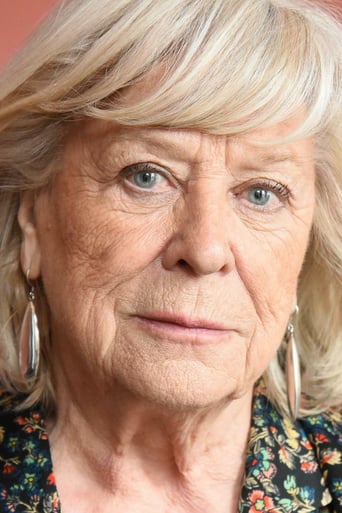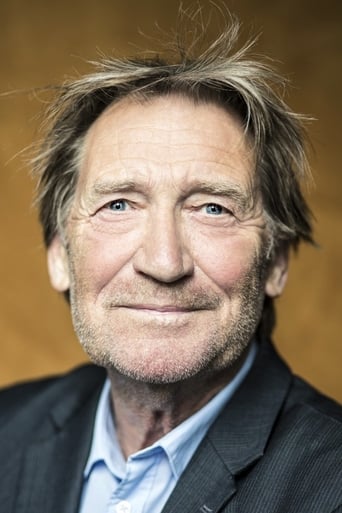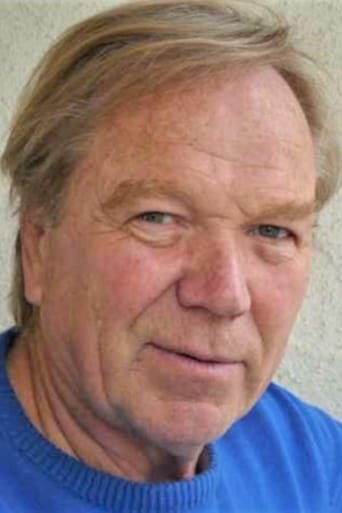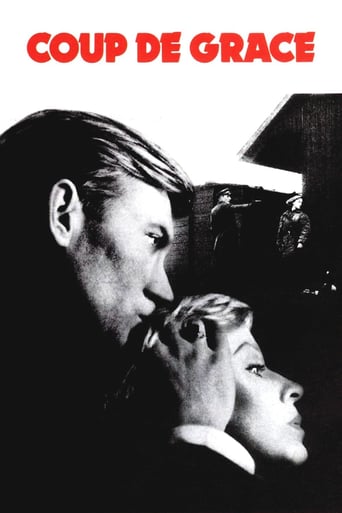
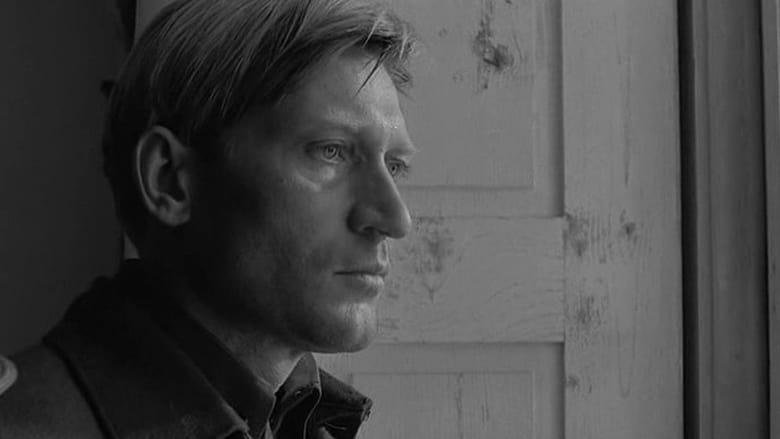
Coup de Grâce (1978)
A countess loves her brother's Prussian-officer friend in the 1919 Baltic area.
Watch Trailer
Cast


Reviews
Sorry, this movie sucks
It was OK. I don't see why everyone loves it so much. It wasn't very smart or deep or well-directed.
The film creates a perfect balance between action and depth of basic needs, in the midst of an infertile atmosphere.
One of the worst ways to make a cult movie is to set out to make a cult movie.
Volker Schlöndorff is one of the most overrated directors of the New German Cinema school, and that shows in some of his most celebrated films, including THE TIN DRUM. His adaptions of literature seldom reach beyond mere illustration and even so Schlöndorff never seems to know what the point of his stories actually is.DER FANGSCHUSS/COUP DE GRACE is one of his more watchable works, which might be largely due the fine, atmospheric B/W photography. But compared to Margarete Yourcenar's novel Schlöndorff's inability to adopt a proper point of view becomes apparent. The novel is told in first person by the main character Erich von Lhomond; yet in Schlöndorff's version it is never clear if it his or Sophie's story. The erotic obsession Sophie has for Erich, mixed with political adversity, which is so crucial for the story is almost completely missing in the film. It is rather supposed than being actually shown and acted out. Unless you have not read the book you cannot measure Schlöndorff's failure to convey what's actually going on between these two.The greatest flaw is the miscasting of the director's wife Margarethe von Trotta, who is not only a mediocre actress but who is visibly at least 15 years too old for her character, leaving it pointless and unbelievable. Trotta sucks so badly in her part that it makes the whole film a pain to watch every time she appears on screen.One of the few truly enjoyable moments is the final screen appearance of legendary actress and Pabst veteran Valeska Gert (THE JOYLESS STREET) in an eccentric supporting part - even though her black dyed hair, heavy make-up and curious antics make her hardly a convincing Baltic German landowner lady of the early 20th century.DER FANGSCHUSS is a pretentious misunderstanding, like most of Schlöndorff's work.
In a depopulated part of northeastern Europe, desperate men are fighting a hopeless, pointless war after the Great War has ended. It is the winter of 1919-1920 in Latvia, and the Treaty of Versailles will soon establish the independence of the Baltic states. Schlondorff has taken Yourcenar's novel and made a wonderful mood piece out of it. The acting is great: Matthias Habich is stiff and uncomprehending, Margarethe von Trotta is warm and lively as well as passionately Bolshevik, Valeska Gert, whom I remember from a Louise Brooks silent film, is the half-crazy aunt.Schlondorff's films are tremendous literary adaptations that stand on their own as film creations. I see the world a little through his eyes, just as I see it through Renoir's, or Bertolucci's, or Altman's.
I had never seen any of the work of Schlöndorff prior to watching this film, so Fangschuß came as an overwhelming surprise, a movie whose pathos and displays of cinematic brilliance (Igor Luther) seem like something between the thanatotic films of Bergman and the dreamlike confusions of some of Fellini's work-- Through a Glass Darkly and La Dolce Vita come to mind. More then any film I've ever seen, Fangschuß seems to capture that terrifying collapse of ones life into a sort of unpredictable madness and ambiguity, the torture that the films personal relations depict overshadowing the brutality of the war itself, in a way that all the while juxtaposes the themes of love and death in a way I had hitherto not thought possible. Certainly not light watching-- but I'd recommend this film to everybody, especially since so few people seem to have heard of it.
**Film plot and ending analyzed**The Baltic states in 1919 are witnessed two years after the Russian revolution, the country is torn by civil war between the Whites and the Reds and the old Prussian nobility that realizes that this is no longer Germany. Konrad and his volunteer corps have withdrawn from Reval to his parents' castle in Kratovice determined to defend the outdated feudal system. Konrad's sister Sophie maintains friendly relations with the rebels, especially Gregori Loew, the son of the Jewish village tailor. Although she shares his views, she lacks the strength to tear herself out of her surroundings. She falls more and more deeply in love with Konrad's friend Erich von Lhomond, a dashing gentleman rider who "likes to fight a losing battle" because he would only be an insignificant figure in ordinary life. He is not particularly interested in women and is attracted much more strongly to Konrad than to Sophie. He brutally rejects her love but responds more and more jealously as she throws herself headlong into various affairs with his comrades in the corps. Things come to a head at Christmas: when Sophie kisses young Volkmar von Plessen, who wants to marry her, Erich slaps her in front of her aunt and the other officers. She only admits to her love once more. Erich orders her to wait until he returns from a foray against the Bolsheviks. However, Sophie has in the meantime learned the truth about Erich von Lhomond and her brother. She sharply demands an answer from her beloved and then leaves the castle to join Gregori Loew and his band of rebels. The situation in the Baltic has become hopeless for Lhomond and his fighters. Konrad has been killed in one of the last battles and the remainder of his troop decides to head for Germany. Sophie and her comrades are captured by Erich in a battle for a farm during which Gregori Loew is killed. The other rebels are shot at Lhomond's command. Sophie demands that Erich execute her himself. Volker Schlöndorff had first come across Marguerite Yourcenar's novel "Der Fangschuss" in 1965 while working on his film TÖRLESS. Even then, he had been attracted by the idea of making a film based on the novel by an author who had become famous for her historical novels and was the only woman in the Académie Française. FANGSCHUSS follows on from TÖRLESS in both form and content, both films displaying the same respect and caution towards the literary original; both are produced in black-and-white and both are basically about suppressed sexuality and reactionary behaviour with the aim of revealing sadomasochistic relations and fascist tendencies. Volker Schlöndorff has by no means left the political arena to concentrate on a historical subject or purely human problem in this film, which was produced one year after the sensational success of DIE VERLORENE EHRE DER KATHARINA BLUM; the "problematical relationship between men and women" (Volker Schlöndorff) portrayed by the film in the form of a highly dramatic affair is closely related to the social and historical background of a struggle between supporters of the old order and the supporters of new social ideas. Sophie is not only driven to join the rebels by Erich's emotional coldness and the humiliating realization that he used her to come closer to her brother, but also by her revulsion of war and the male solidarity among the officers, as well as by the realization that they need the war "in order to live out their lives" and satisfy their secret cravings. Schlöndorff clearly contrasts the scenes showing the private relations and strains between the protagonists with scenes showing the fight against the rebels and the shooting of prisoners. The leading actors and particularly Margarethe von Trotta have prevented the film from fulfilling its intention of telling the "story of an act of humiliation ending in revolt" (Schlöndorff). Margarethe von Trotta's Sophie remains a shadowy figure capable of expressing her anger and defiance at Erich's cool remoteness, but she fails to display the emancipation of a woman who sees through the men's military madness and rebels against it. Sophie's revolt is emotional, not political. However, the subject of Sophie's desire, the handsome Erich, is also a somewhat pale figure and the erotic triangle between Erich, Konrad and Sophie is created in the viewer's imagination rather than in the reality of the film. Schlöndorff's film thus lacks the dramatic core intended by the director, but he compensates this shortcoming with dense atmospheric images of the barren snowscape and the castle's rundown interiors. With their black-and-white shading and their grey tones reminiscent of the films produced by Jean-Pierre Melville, Schlöndorff's "first mentor" to whom this film is dedicated, these images evoke a decaying, dying world in which real, open relations between people have become impossible. Despite the weakpoints in the screenplay and in the handling of the actors, this gives DER FANGSCHUSS a dramatic presence making the historical situation transparent to the present on at least an emotional level if not on an intellectual plane. It is a powerful film... full of noise and furor...


